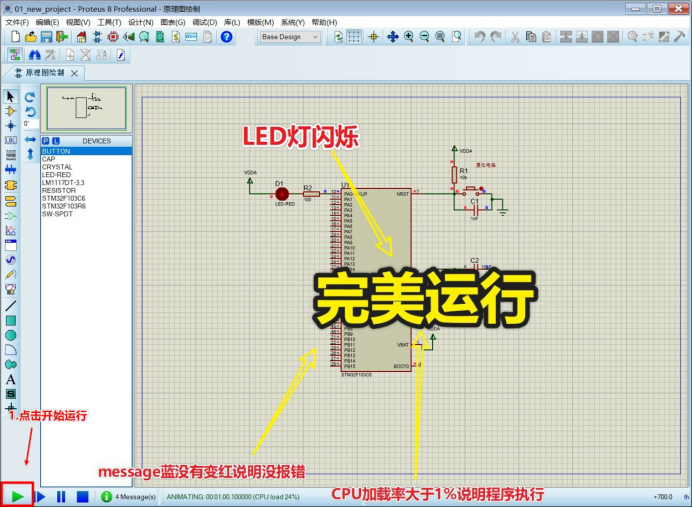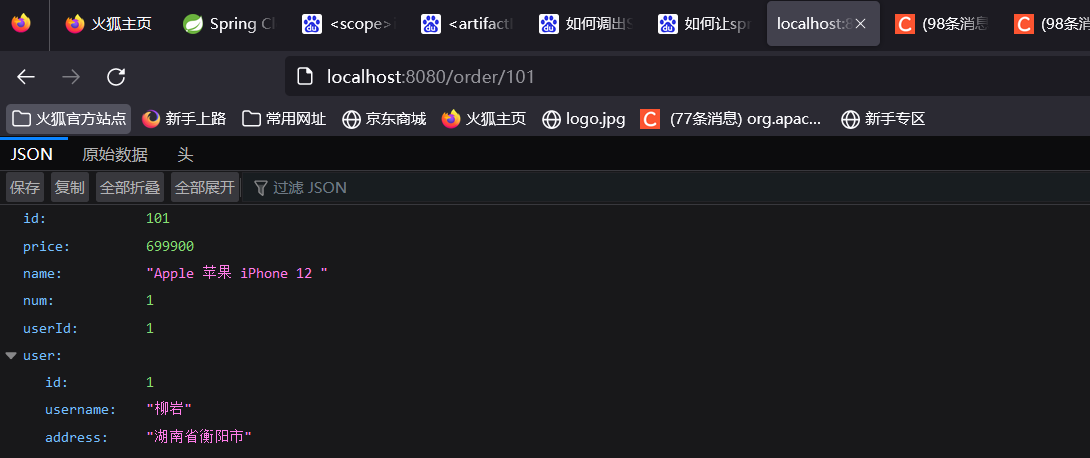1、同步、异步、阻塞、非阻塞
同步过程:发起调用,调用者需要等待被调用者的结果
异步过程:发起调用,无需等待被调用的结果,当有结果后,此结果传出,无需主动获取
阻塞和非阻塞:发起到产生结果,中间的等待过程
阻塞:放弃cpu
非阻塞:不放弃cpu
2、线程安全问题
1、多线程访问互斥
多线程访问共享数据,引发冲突和异常,例如多个线程操作共享数据结构体,全局变量,磁盘文件等
举例:a=0;a++
a++的操作,汇编指令需要三句:内存取值0,自增1,回写1
当寄存器还未回写成功之前,寄存器中的值仍为0,因此另一个线程在取值时,取到的可能是还未回写成功的1,而是还未自增前的0
结果:多线程访问a,应该是一个累加过程,但是因为访问冲突,导致最终的结果比预期结果小
结果截图:问题不明显,但是有问题

如果中间引入变量,则问题更明显,结果相差更多

解决方法1:互斥锁
1、互斥锁使用目的
互斥锁是用来保护代码段的,一般代码段是用来访问全局变量的
一般只对访问读写全局数据的代码上锁
2、互斥锁的使用范围
上锁与解锁之间的代码,被称为临界区代码,是被互斥保护的
无论有多少线程,临界区代码只允许单独访问,其他线程只能等待
pthread_mutex_t lock3、互斥锁的性质
多个线程争夺一把锁,利用一把锁来保护代码段,锁具有互斥性,只有一个线程可以使用这把互斥锁, 其余线程需要等待
互斥锁的系统里存在一个等待队列,称为互斥等待队列,进入到等待队列中的线程均为阻塞态
当当前占用锁的线程结束,下一个使用锁的线程确定方式:
1、争夺访问,当锁被解除占用,唤醒所有等待线程,争夺资源
但是可能引起惊群问题:资源有限的情况下,多个线程争夺资源,但是只有少数线程可以获取,那些没有抢到的线程付出的开销没有意义
2、预分配
避免惊群问题,在等待的线程中分配唤醒标记,只有被标记的线程,资源释放后才能被唤醒使用资源
3、就近原则
提高资源的使用效率,如果线程解锁后立即请求,同时满足条件(时间片充裕),依然是此线程占用
4、互斥锁的函数使用
pthread_mutex_t lock——互斥锁类型
lock=PTHREAD_MUTEX_INITIALIZER——静态初始化
pthread_mutex_init(&lock,NULL)——动态初始化
pthread_mutex_destroy(&lock)——释放互斥锁
pthread_mutex_lock(&lock)——上锁请求,阻塞模式下,如果资源被占用,则等待
pthread_mutex_unlock(&lock)——解锁
解决代码
一般习惯将锁设在for循环内部
写端上锁的原因:两个线程同时写入,容易造成相互覆盖
读端上锁的原因:如果一端为读端,一端为写端,可能造成读到的是刚写入的数据
#include<stdio.h>
#include<unistd.h>
#include<stdlib.h>
#include<string.h>
#include<signal.h>
#include<pthread.h>
#include<pthread.h>#define FLAG 5000
int a;
pthread_mutex_t lock=PTHREAD_MUTEX_INITIALIZER;void * busines(void* arg)
{int tmp;for(int i=0;i<FLAG;i++){ pthread_mutex_lock(&lock);tmp=a;printf("thread 0x%x ++a %d\n",(int)pthread_self,++tmp);a=tmp;pthread_mutex_unlock(&lock);}
}int main()
{pthread_t tids[2];int i;for(i=0;i<2;i++){ pthread_create(&tids[i],NULL,busines,NULL);} while(i--){ pthread_join(tids[i],NULL);} return 0;
}
成功截图

解决方法2:读写锁
1、读写锁的性质
读写锁在互斥锁的基础上修改,它满足多读场景,如果用户要读取数据可以使用读锁访问,如果用户要修改数据使用写锁访问
读共享,写独占,读写互斥
写锁与互斥锁一致,为独占锁
如果要提高资源的读访问效果,可以先采用读写锁,避免使用互斥锁
2、读写锁的函数使用
pthread_rwlock_t lock——读写锁类型
lock=PTHREAD_RWLOCK_INITIALIZER——静态初始化
pthread_rwlock_init(&lock,NULL)——动态初始化
pthread_rwlock_destroy(&lock)——释放锁
pthread_rwlock_rdlock(&lock)——上读锁
pthread_rwlock_wrlock(&lock)——上写锁
pthread_mutex_unlock(&lock)——解锁
读写锁代码
#include<stdio.h>
#include<unistd.h>
#include<stdlib.h>
#include<string.h>
#include<signal.h>
#include<pthread.h>
#include<pthread.h>#define FLAG 5000
int code;
pthread_rwlock_t lock=PTHREAD_RWLOCK_INITIALIZER;void * rd_busines(void* arg)
{while(1){ pthread_rwlock_rdlock(&lock);printf("rd thread 0x%x , %d\n",(int)pthread_self(),code);pthread_rwlock_unlock(&lock);usleep(3000000);}
}void * wr_busines(void* arg)
{while(1){ pthread_rwlock_wrlock(&lock);printf("wr thread 0x%x , ++ %d\n",(int)pthread_self(),++code);pthread_rwlock_unlock(&lock);usleep(3000000);}
}int main()
{pthread_t tids[8];int i;for(i=0;i<3;i++){pthread_create(&tids[i],NULL,wr_busines,NULL);}for(i=0;i<3;i++){pthread_create(&tids[i],NULL,rd_busines,NULL);}while(i--){pthread_join(tids[i],NULL);}return 0;
}
成功截图

3、进程可以使用的互斥锁
并发访问冲突不局限于线程,进程也有
进程可以用的互斥锁:根据修改互斥锁属性,将线程变为进程,可以多进程使用,避免访问异常
函数使用
pthread_mutexattr_t attr——互斥锁属性
pthread_mutex_attr_init(&attr)——初始化属性,默认线程锁
pthread_mutexattr_setpshared(&attr,PTHREAD_PROCESS_SHARED)——将互斥锁属性中的锁的状态变为进程锁
pthread_mutexattr_destroy(&attr)——释放互斥锁属性
pthread_mutex_init(&lock,&attr)——初始化锁时使用自定义属性
代码
#include<stdio.h>
#include<unistd.h>
#include<stdlib.h>
#include<string.h>
#include<signal.h>
#include<pthread.h>
#include<pthread.h>
#include<sys/mman.h>
#include<sys/wait.h>
#include<sys/types.h>
#include<sys/stat.h>
#include<sys/fcntl.h>typedef struct
{int code;pthread_mutex_t lock;
}shared_t;int main()
{int fd;shared_t* ptr;fd=open("process_map",O_RDWR);ftruncate(fd,sizeof(shared_t));pthread_mutexattr_t attr;pthread_mutexattr_init(&attr);pthread_mutexattr_setpshared(&attr,PTHREAD_PROCESS_SHARED);ptr=mmap(NULL,sizeof(shared_t),PROT_READ|PROT_WRITE,MAP_SHARED,fd,0);pthread_mutex_init(&ptr->lock,&attr);ptr->code=0;pid_t pid;pid=fork();if(pid>0){for(int i=0;i<5000;i++){pthread_mutex_lock(&ptr->lock);printf("parent %d,++code %d\n",getpid(),++ptr->code);pthread_mutex_unlock(&ptr->lock);}wait(NULL);pthread_mutex_destroy(&ptr->lock);pthread_mutexattr_destroy(&attr);munmap(ptr,sizeof(shared_t));}else if(pid==0){for(int i=0;i<5000;i++){pthread_mutex_lock(&ptr->lock);printf("child %d,++code %d\n",getpid(),++ptr->code);pthread_mutex_unlock(&ptr->lock);}exit(0);}else{perror("fork call failed");exit(0);}return 0;
}
正确截图




















